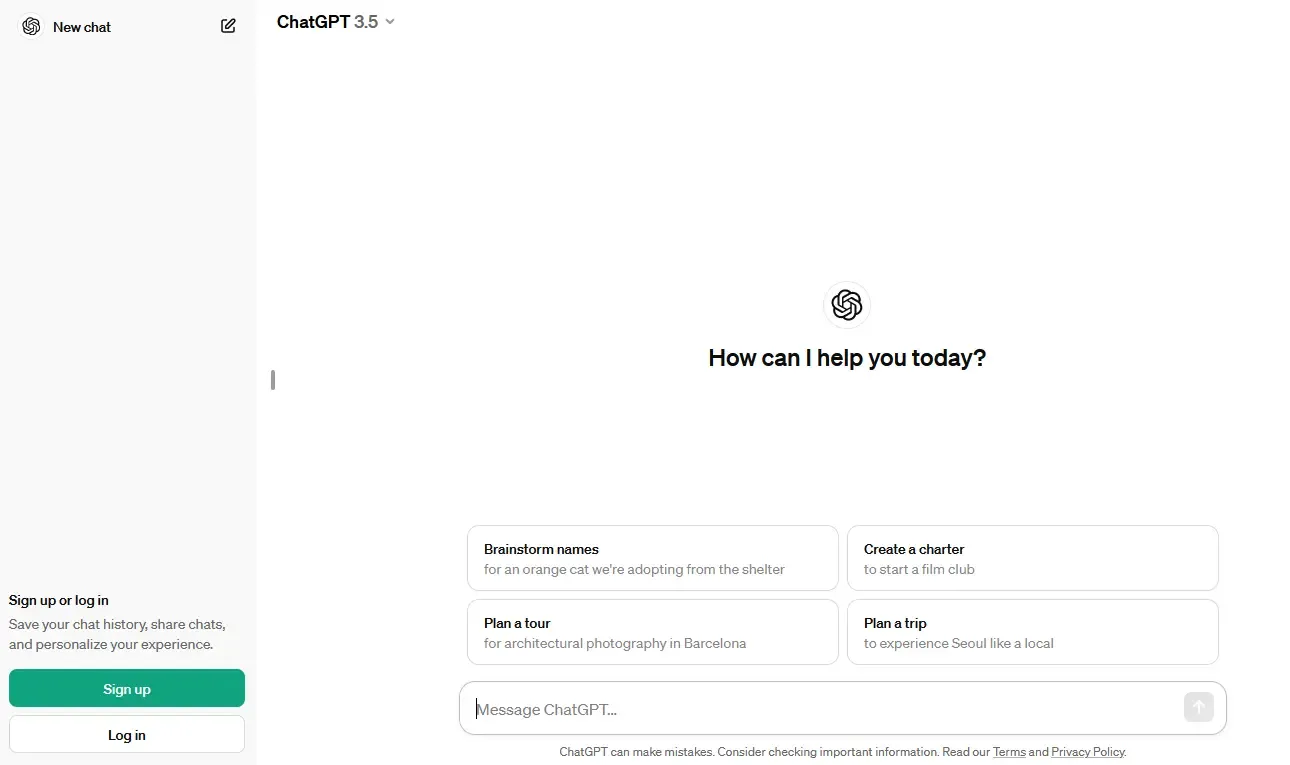ChatGPT is now available to everyone without the need for an account
OpenAI has announced that its popular AI chatbot, ChatGPT, is now available to everyone without the need for an account. This significant shift removes a major barrier to entry, potentially paving the way for wider adoption and exploration of this powerful language model.
Previously, accessing ChatGPT required creating an account and logging in, a process that could deter casual users or those with privacy concerns. Now, anyone can simply visit the ChatGPT website and begin interacting with the AI directly. This change underscores OpenAI's commitment to democratizing access to AI technology and fostering a broader understanding of its capabilities.
However, it's important to note that while account creation is no longer mandatory, it does come with certain benefits. Users who choose to register will gain access to additional features, including the ability to save their conversation history and personalize their interactions with ChatGPT. Additionally, OpenAI has indicated that free access may be subject to limitations, particularly during peak usage periods.
Despite these caveats, the removal of the account requirement represents a significant step forward in making AI technology more readily available to the public. This increased accessibility has the potential to unlock a range of new possibilities, from facilitating creative writing and brainstorming to aiding in research and education.
For instance, students can now leverage ChatGPT to explore complex topics, generate ideas for essays, and receive instant feedback on their writing. Writers can utilize the AI as a sounding board for their creative projects, overcoming writer's block and exploring new narrative avenues. Additionally, researchers can benefit from ChatGPT's ability to summarize large amounts of text and generate hypotheses, accelerating their workflow and uncovering new insights.
The implications extend beyond individual use cases. Businesses and organizations can integrate ChatGPT into their workflows to automate tasks, improve customer service, and generate content. This can lead to increased efficiency, cost savings, and a more engaging user experience.
However, it's crucial to acknowledge the potential challenges accompanying this increased accessibility. Concerns surrounding misinformation, bias, and the ethical implications of AI language models remain at the forefront. OpenAI acknowledges these concerns and emphasizes its ongoing efforts to mitigate bias and ensure responsible use of its technology.
The company has implemented safeguards within ChatGPT, including filters to prevent the generation of harmful or offensive content. Additionally, OpenAI encourages users to provide feedback and report any instances of bias or inappropriate behavior.
Ultimately, the success of this new era of accessibility hinges on a collective effort to use AI responsibly and ethically. OpenAI's decision to remove the account requirement for ChatGPT represents a bold step towards democratizing AI, but it also underscores the need for ongoing dialogue and collaboration to ensure that this technology is used for the benefit of society.
As we move forward, it will be crucial to monitor the impact of this increased accessibility and address any unforeseen challenges that may arise. OpenAI's commitment to transparency and user feedback will be essential in navigating this new landscape and ensuring that AI language models like ChatGPT are used ethically and responsibly.
This development marks a significant milestone in the evolution of AI and its integration into our daily lives. The potential benefits are vast, but it is our collective responsibility to ensure that this technology is used thoughtfully and ethically to create a better future for all.


Join the conversation